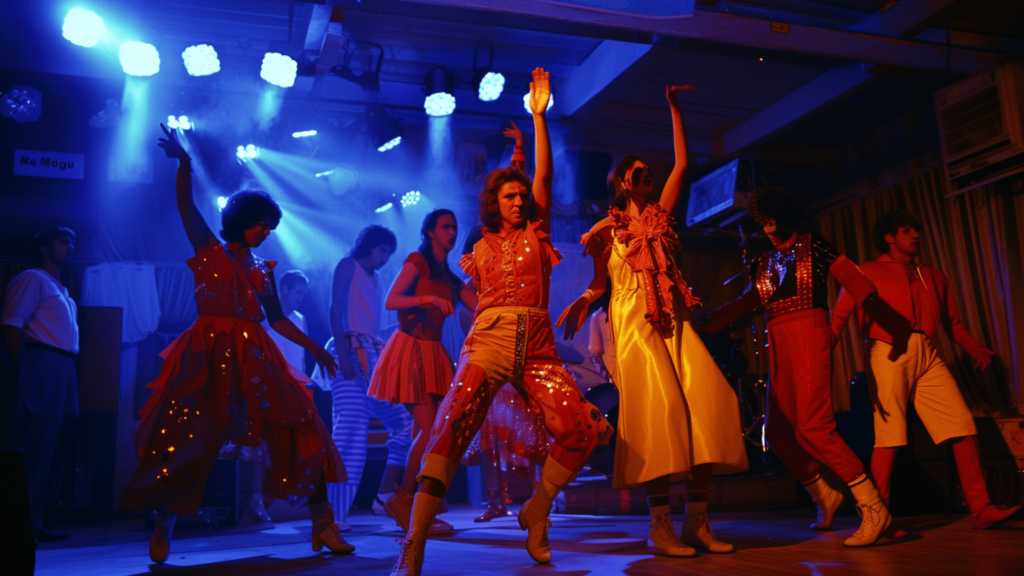Imagine a melody that transcends time, a song that echoes the heartbeat of a vanished nation. Yugoslavia’s legacy through the Eurovision Song Contest is a tale of music, history, and cultural identity woven into the very fabric of a country that once was.

The Eurovision Song Contest, an annual extravaganza of music, flamboyance, and cultural expression, has long been more than just a competition. It’s a stage where nations not only showcase their musical talents but also their national identity, cultural heritage, and, often, their political undercurrents. Yugoslavia’s inclusion in this prestigious event was no exception. From its debut in 1961 to its final bow in 1991, Yugoslavia’s Eurovision legacy mirrored its own turbulent yet fascinating history.
This blog delves into some of the most iconic Yugoslavian entries in the Eurovision Song Contest. We’ll explore how these songs not only made a mark in the contest but also left an indelible imprint on the hearts and minds of the Yugoslav people and beyond. Join us as we unravel the melodies that defined a nation, the songs that witnessed history, and the music that continues to evoke nostalgia for a country that once existed on the world map.
Yugoslavia’s Rising Stars and Memorable Melodies
The streets of Belgrade, bustling with artistic fervor, marked the humble beginnings of Yugoslavia’s Eurovision legacy. The city, a melting pot of Slavic and Mediterranean influences, witnessed the rise of numerous Eurovision stars who infused their music with a blend of Eastern European charm and Western modernity. For instance, the 1961 entry “Neke davne zvezde” by Ljiljana Petrović exemplified the harmonic blend of traditional Balkan elements with contemporary trends, resonating with audiences across Europe.
In the following years, cities like Zagreb and Sarajevo emerged as cultural hubs, each contributing uniquely to Yugoslavia’s musical odyssey. Zagreb, with its historic architecture and vibrant urban life, echoed through the melodies of its Eurovision representatives, showcasing a blend of Croatian folklore and modern pop. Sarajevo, renowned for its multicultural spirit, offered entries that reflected its rich Bosnian heritage, further adding to the diverse Eurovision legacy of Yugoslavia.
Each song from this era, with its distinct regional flavor, not only entertained but also narrated the story of Yugoslavia’s rich cultural mosaic. This period in Yugoslav Eurovision history set the foundation for a journey that was as much about showcasing musical prowess as it was about celebrating a multifaceted nation’s diverse yet unified spirit.
Unveiling Trieste: Embracing a Mosaic of Cultures
As we conclude our exploration of Trieste, we circle back to the essence of our introduction — the unique cultural identity of this Italian city. With its blend of Latin, Slavic, and Germanic influences, Trieste stands as a vibrant example of cultural fusion. Trieste is a living museum of European history, from its linguistic diversity to the city’s architectural marvels. The city’s global influences, historical ties with Yugoslavia, and contemporary dynamism all contribute to its distinct character.
This journey through Trieste reveals more than just a city’s history; it unveils the potential of cultural coexistence and harmony. Trieste serves as a beacon for multiculturalism, showing how diverse influences can create a rich, cohesive community. As readers, we invite you to experience Trieste firsthand. Wander its multicultural streets, savor its unique cuisine, and immerse yourself in its rich history. Discover how this city beautifully defies the typical Italian stereotype and stands proudly as a testament to the enduring beauty of cultural diversity. Trieste awaits to share its story with you.

Yugoslavia’s Eurovision Legacy Vis-a-vis Its Political Overtones and Cultural Impact
Yugoslavia’s Eurovision legacy transcended the realm of mere musical contestation; it became a canvas for reflecting the nation’s political and social dynamics. During the 1970s and 1980s, amidst a changing political landscape, Eurovision songs from Yugoslavia often carried subliminal messages of unity and harmony. This era saw entries that subtly addressed the complexities of Yugoslav society, where music became a medium for expressing its people’s collective aspirations and anxieties.
In cities like Ljubljana and Novi Sad, the Eurovision entries resonated with the local populace, who saw reflections of their daily experiences and hopes in these songs. Ljubljana, with its picturesque landscapes and historical monuments, vibrated to the tunes that spoke of a progressive, forward-looking Slovenia within the Yugoslav Federation. Similarly, Novi Sad, a city known for its rich cultural heritage and diverse ethnic makeup, found its voice in songs highlighting the harmonious coexistence of different cultures within Yugoslavia. These entries were not just musical compositions but potent symbols of the Yugoslav identity, showcasing the nation’s ability to blend multiple ethnic narratives into a cohesive, albeit complex, cultural tapestry. As such, the Eurovision entries from this period became significant not just for their musicality but for their capacity to mirror the societal ethos of Yugoslavia.

The Success That Led to Yugoslavia’s Eurovision Legacy
The year 1989 stands as a watershed moment in Yugoslavia’s Eurovision legacy. It was the year when Riva, a band hailing from the picturesque coastal city of Zadar, clinched victory with their captivating song “Rock Me.” This achievement was not just a win on the Eurovision scoreboard; it was a triumph that resonated deeply with the Yugoslav spirit.
The victory was celebrated across the nation, from the lively streets of Ljubljana to the serene Adriatic shores of Montenegro. It symbolized a moment of unity and national pride, a rare glimpse of cohesion for a country on the edge of fragmentation. In Zadar, where Riva originated, the win was more than a local success; it was a testament to the entire Yugoslav federation’s artistic potential and cultural richness. The song “Rock Me” became an anthem, representing a nation’s youthful energy and optimism amidst complex political and social transitions. The victory was a beacon of hope, suggesting that despite the impending challenges, Yugoslavia’s Eurovision legacy was shaping up as it proved it could still stand united — at least through the universal language of music.

The Final Curtain
Yugoslavia’s Eurovision legacy culminated in the song contest’s 1991 season, marked by Bebi Dol’s “Brazil” — a poignant and symbolic farewell. As the song echoed from the studios of Belgrade to the historic streets of Dubrovnik, it was enveloped in nostalgia and melancholy.
Despite its low ranking at the contest, “Brazil” captured the essence of a nation at the crossroads of change. The song’s eclectic style and spirited performance were reflective of a culture that was vibrant, diverse, and rich in artistic expression.
Belgrade is a city known for its resilience and cultural vitality, and the song stirred emotions of a bygone era. Brazil became a reminder of the days when Yugoslavia stood as a united, albeit complex, entity.
For the last time, the stage showcased Yugoslavia’s Eurovision legacy and diverse cultural identity. As the country approached its dissolution, this final entry served as a metaphorical curtain call, a closing chapter in the nation’s Eurovision story. It was a bittersweet moment that captured the end of an era, leaving a legacy of music and memories that would continue to resonate in the hearts of many.
Listen to The Echoes of a Melodic Journey
As we culminate our exploration of Yugoslavia’s Eurovision legacy, we reconnect with the essence of this journey — a blend of music, history, and cultural identity. From the bustling streets of Belgrade to the serene Adriatic coast, each song presented in this contest reflected Yugoslavia’s diverse and rich cultural tapestry. These melodies were not just tunes but stories, emotions, and memories encapsulated in rhythm and lyrics. This journey through Yugoslavia’s Eurovision legacy is a reminder of how music can transcend boundaries, unify diverse cultures, and encapsulate moments in time. It highlights the power of song in narrating a nation’s story and preserving its legacy. As we reminisce about these iconic performances, we invite you to explore the rich cultural heritage of the former Yugoslav regions. Discover the cities, the landscapes, and the people that inspired these timeless Eurovision entries. Let the music guide you through historical discovery and cultural appreciation. Compose your own journey in Yugoslavia!
